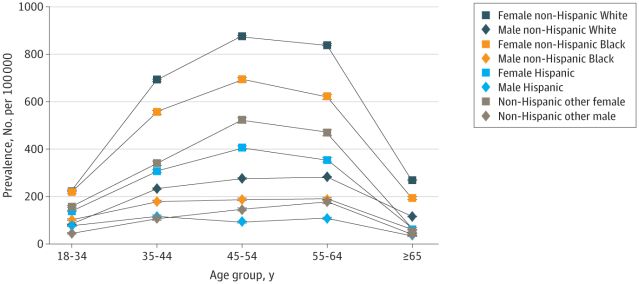
The Surprising Link Between Mono and MS: 2025 Research Update
What if a common childhood virus could trigger a lifelong neurological condition decades later? Recent groundbreaking research has uncovered compelling evidence about the surprising link between Epstein-Barr virus (EBV) and multiple sclerosis (MS), transforming our understanding of autoimmune disease origins. This 2025 update reveals how a virus that causes mononucleosis may be the missing piece in the MS puzzle.
Why This Viral Connection Matters in 2025
Multiple sclerosis affects nearly 1 million Americans, with women being three times more likely to develop the condition than men. The latest research from 2023-2024 studies confirms that EBV infection increases MS risk by an astonishing 32 times. This isn’t just correlation—it’s one of the strongest causal relationships ever documented in autoimmune research.
Recent data shows that over 90% of adults carry EBV, yet only a small fraction develop MS. This suggests the virus interacts with genetic and environmental factors, making this surprising link between viral infection and autoimmune response crucial for understanding disease prevention.
The Science Behind EBV and Multiple Sclerosis
Epstein-Barr virus is a herpesvirus that typically causes mild symptoms in children but can lead to mononucleosis in teenagers and young adults. Once infected, the virus remains dormant in B cells for life, occasionally reactivating during periods of immune stress.

Multiple sclerosis occurs when the immune system mistakenly attacks the protective myelin sheath around nerve fibers. This disrupts communication between the brain and body, leading to symptoms like numbness, muscle weakness, and vision problems. The surprising link between these two conditions lies in molecular mimicry—where EBV proteins resemble myelin components, confusing the immune system into attacking the body’s own nerve tissue.
5 Key Research Findings About the EBV-MS Connection
Massive Risk Increase: A 2022 study of 10 million military personnel found EBV infection increased MS risk by 32.4 times—one of the largest effect sizes ever observed in epidemiology
Timing Matters: Research shows EBV infection typically precedes MS diagnosis by several years, supporting the causal relationship
Specificity Confirmed: When researchers tested for over 30 different viral infections, only EBV antibodies were elevated in MS cases
Genetic Interactions: Certain genetic variants, particularly in the HLA region, appear to increase susceptibility to EBV-triggered MS
Treatment Implications: B-cell depletion therapies that target EBV-harboring cells have shown significant success in managing MS symptoms

Common Misconceptions About Viral Triggers and Autoimmune Disease
Many people mistakenly believe that if nearly everyone has EBV, the virus can’t be responsible for MS. However, research indicates EBV is likely necessary but not sufficient—other factors like genetic predisposition, vitamin D levels, and environmental triggers must align for MS to develop.
Another common error involves confusing correlation with causation. The 2022 military study effectively ruled out reverse causality by showing EBV infection consistently preceded MS diagnosis, and using cytomegalovirus as a control virus helped eliminate general immune dysfunction explanations.
Advanced Prevention Strategies Based on Current Research
While EBV vaccines remain in development, current research suggests several proactive approaches:
- Early Testing: Consider EBV antibody testing if you have a family history of autoimmune conditions
- Immune Support: Maintain optimal vitamin D levels, as deficiency is linked to increased MS risk
- Stress Management: Chronic stress can trigger EBV reactivation, so incorporate regular stress-reduction practices
- Healthy Gut: Emerging research connects gut health to autoimmune regulation through the gut-brain axis
What This Means for Future MS Treatment and Prevention
The surprising link between EBV and MS opens exciting new avenues for treatment and prevention. Current research focuses on:
- EBV-Targeted Therapies: Antiviral medications that specifically target latent EBV infection
- Vaccine Development: Several EBV vaccine candidates are in clinical trials, with potential to prevent MS in future generations
- Early Intervention: Identifying high-risk individuals before symptom onset for preventive measures
- Combination Approaches: Integrating antiviral strategies with existing immunomodulatory treatments
Your Action Plan: Next Steps Based on This Research
- Stay Informed: Follow reputable medical sources for EBV vaccine development updates
- Know Your Risk: Discuss family history and potential risk factors with your healthcare provider
- Support Research: Consider contributing to organizations funding MS and autoimmune disease research
- Practice Prevention: Maintain overall immune health through balanced nutrition, regular exercise, and stress management
Frequently Asked Questions
Can avoiding EBV infection prevent MS? Given EBV’s extreme prevalence, complete avoidance is challenging. However, delaying infection until adulthood may reduce mono severity, and future vaccines could offer protection.
If I had mono, will I get MS? No—the vast majority of people with EBV never develop MS. The virus appears to be one necessary factor among several required for MS development.
Are current MS treatments targeting EBV? Some treatments like anti-CD20 monoclonal antibodies indirectly target EBV by depleting B cells where the virus hides, but direct EBV-targeting therapies are still in development.
How soon might an EBV vaccine be available? Several candidates are in Phase 2 and 3 trials, with optimistic projections for the coming 3-5 years, though regulatory approval timelines vary.
Key Takeaways
The surprising link between Epstein-Barr virus and multiple sclerosis represents one of the most significant medical discoveries in autoimmune research. While EBV infection is extremely common, only a small percentage of people develop MS due to additional genetic and environmental factors. This research opens promising new pathways for prevention through vaccination and targeted treatments that address the viral trigger at the root of this neurological condition.









